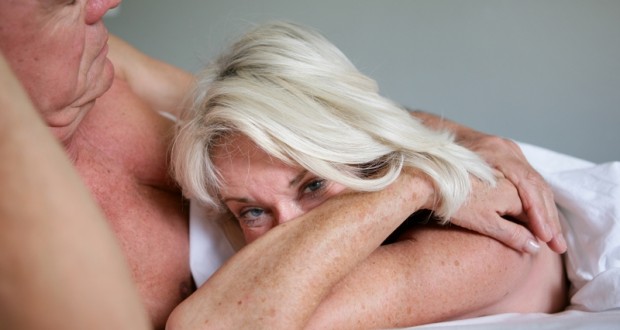By: Red Hot Mamas
Published: April 12, 2016
Contributed by Dr. Barb DePree- Red Hot Mamas Medical Expert
Recently, MiddlesexMD conducted a short survey in partnership with Prevaleaf, a maker of natural intimate care products for women, to find out a few things about vaginal dryness, how women feel about it, and who you talk to about it.
It was a small-ish sample size of just over 100 women, not exactly unbiased science, because most of the respondents were women already reading newsletters from MiddlesexMD or PrevaLeaf. Eighty-five percent of respondents were over 40 years old. But those were exactly the women we wanted to hear from, so the results were revealing, helpful, and occasionally disheartening.
First, virtually all women experience vaginal dryness to one degree or another. (If you don’t, count your lucky stars.) In this survey, 92.5 percent of respondents “sometimes” or “often” experience vaginal dryness either daily or during sex. This is no surprise. I treat women with this problem every day in my clinical practice.
Equally significant was the level of awareness-or lack thereof-about that eventual drying up of the well-lubed youthful vagina. For a lucky 10 percent in this survey, vaginal dryness was “better or less severe” than what the respondent expected, and for 3 percent it was right on point with expectations. But over half of you didn’t know what to expect, and for another third, it was worse than expected.
One respondent said “never heard of it until I had it!” Some mentioned feeling betrayed or angry at the way vaginal dryness sucks the joy right out of sex. (It’s very, very hard to enjoy painful sex.) I want to reassure you in the strongest way possible: Vaginal dryness is extremely treatable!
Almost every day, I see patients who suffer, and I mean suffer, from vaginal dryness due to menopause or surgically induced menopause, such as hysterectomy. In medical parlance, the umbrella term for dry, brittle vaginal tissue is now “genitourinary syndrome of menopause,” just so you know (it’s been called vulvovaginal atrophy until recently).
If a patient comes to me, that usually means the condition is painful and probably damaging her sex life, and thus, her intimate relationship. Of course she’ll avoid sex when it hurts, even though sex is an important glue that binds a couple. I’m not always the first doctor a woman has seen, so I know that you may need patience and persistence in seeking a practitioner who will take your concerns seriously and work with you to find a solution. But we’re out there. Insist on it.
As one survey respondent wrote: “I experienced severe vaginal dryness after going through chemotherapy for breast cancer at the age of 44. The first two doctors I visited could not tell me that I had vaginal dryness. Third time’s the charm! I saw a nurse practitioner who dealt with the issue. She was able to tell me what was going on and how to treat it.”
You may need more persistence to find the treatment that works for you. It can take some experimentation-three months is commonly how long it takes to thoroughly test-drive a treatment regimen. If you’re willing to stay with it, chances are you’ll experience pain-free sex again.
Generally, it makes sense to start with the easiest, most natural regimen first. Take care of your bottom by avoiding scents, harsh soaps, douches, non-breathable underwear. Then, use a moisturizer regularly and lubricants liberally during sex. Natural and high-quality, of course.
If this vaginal-care regimen doesn’t do the trick, another option is topical estrogen. Many women are hesitant to use a hormonal product, but the recent report from the American College of Obstetricians and Gynecologists (ACOG) reaffirms that estrogen used topically in the vagina can offer significant relief without being absorbed systemically. So it’s safe for breast-cancer survivors–and the rest of us.
Another option is the new drug Osphena, which acts like estrogen–without being an estrogen–to vaginal tissue; it has no effect on other tissues, such as the breast. So it’s also safe for those with breast cancer risks. It is a once-daily pill, however, and does have side effects that need to be taken into consideration.
Finally, an important way to keep vaginal tissue healthy is sex itself! Once you can tolerate a little sex, you’re on the way to enjoying a lot more.
Be of good faith, sisters. Many problems in life are tough to solve. Vaginal dryness isn’t one of them. You don’t have to suffer; sex doesn’t have to be painful. And clearly, we need to spread the word to our daughters, nieces, and friends so they’re not taken by surprise.
Dr. Barb DePree gynecologist, NAMS certified menopausal provider and founder of the website MiddlesexMD, a website for promoting women’s sexual health.
 Red Hot Mamas In Charge of Change.
Red Hot Mamas In Charge of Change.




